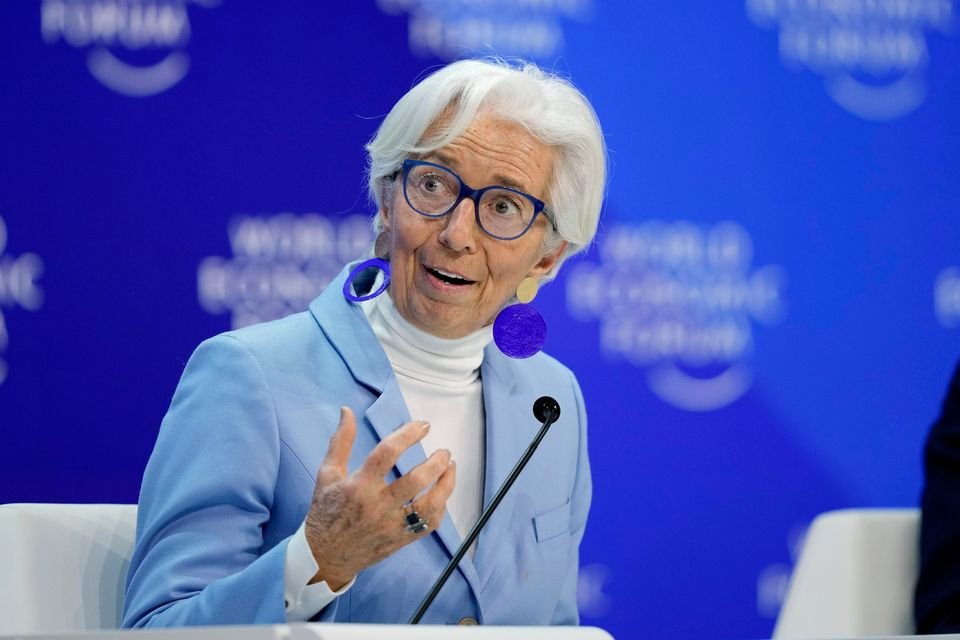European Central Bank (ECB) President Christine Lagarde spoke on Monday at the Annual Economics Conference, focusing on the theme “Pillars of Resilience Amid Global Geopolitical Shifts.” Below are key takeaways:
Key Highlights
- Rate cuts under consideration: Lagarde indicated that further rate cuts could occur if incoming data confirm that disinflation is progressing as expected.
- Shift in policy stance: The ECB no longer sees the need to maintain rates at “sufficiently restrictive” levels.
- Near target achievement: Lagarde suggested the ECB is close to meeting its inflation target.
- Service sector inflation cooling: Inflation momentum in services has shown a significant recent decline.
- Economic risks from U.S. policy: Eurozone growth could face challenges due to new U.S. protectionist measures.
Market Impact
Lagarde’s remarks had minimal immediate effect on the Euro. The EUR/USD remains steady, trading near 1.0500.
ECB FAQs: Quick Insights
What is the ECB, and how does it influence the Euro?
The European Central Bank (ECB) manages monetary policy for the Eurozone, aiming to maintain price stability (around 2% inflation). It influences the Euro primarily through interest rate decisions.
- Higher rates tend to strengthen the Euro.
- Lower rates generally weaken the Euro.
The ECB’s Governing Council meets eight times annually to decide monetary policy, including input from national bank heads and six permanent members like ECB President Christine Lagarde.
What is Quantitative Easing (QE), and how does it impact the Euro?
Quantitative Easing (QE) is an ECB strategy used during economic crises. By purchasing assets like government or corporate bonds, the ECB injects liquidity into the economy.
- QE typically weakens the Euro because it increases money supply.
- QE is a last-resort measure when cutting interest rates alone fails to stabilize inflation.
The ECB employed QE during:
- The Great Financial Crisis (2009–2011).
- Persistent low inflation (2015).
- The COVID-19 pandemic.
What is Quantitative Tightening (QT), and how does it impact the Euro?
Quantitative Tightening (QT) is the opposite of QE. It happens during economic recovery when inflation rises.
- QT typically strengthens the Euro by reducing liquidity in the market.
- The ECB achieves this by halting bond purchases and no longer reinvesting in maturing bonds.
QT signals confidence in the economy and aims to manage inflation effectively.

Leave a Reply